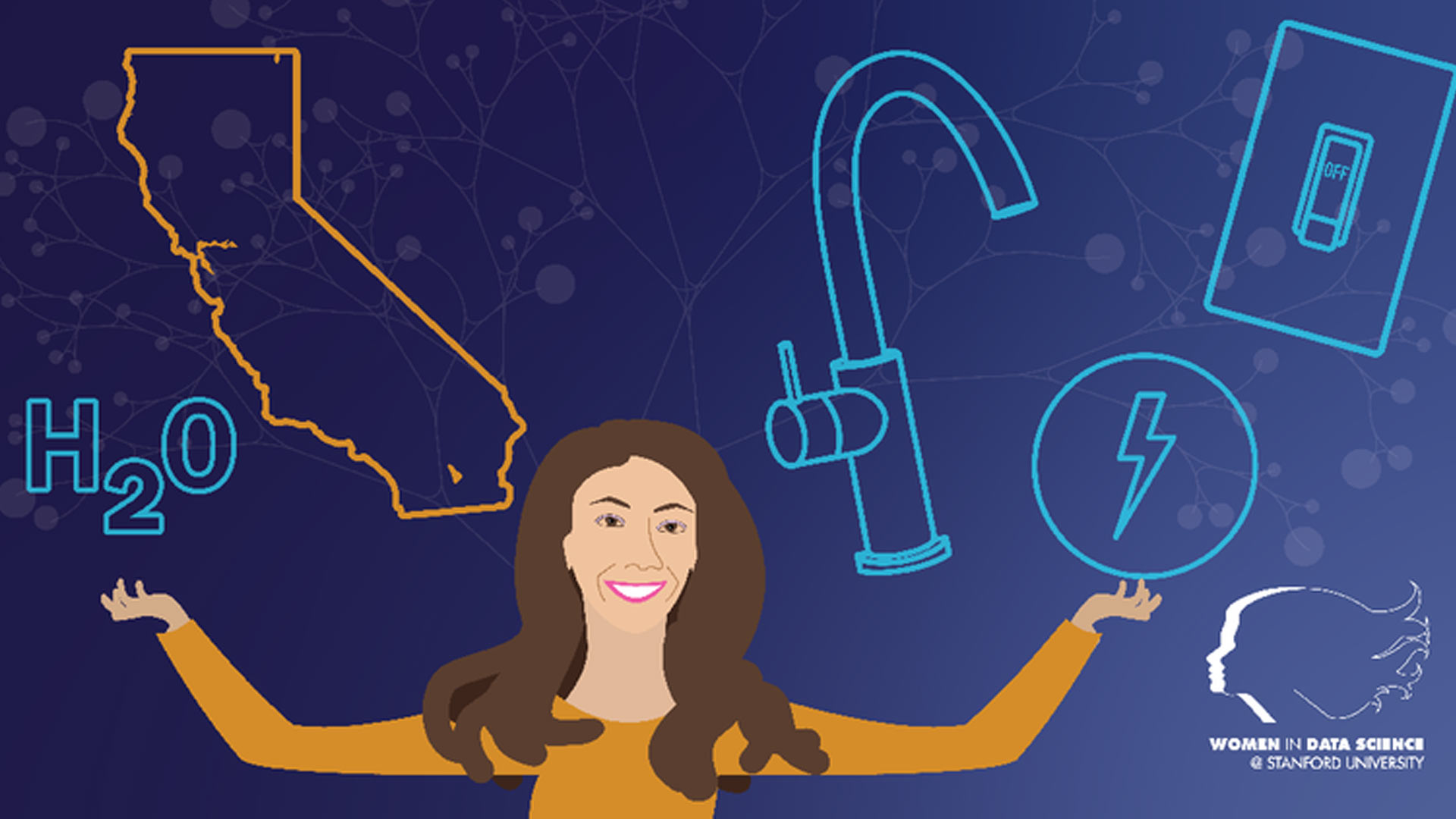This interdisciplinary approach guides her research at Stanford’s Urban Water Policy group where she brings together expertise in hydrology, data science, engineering, public policy, human behavior and economics to improve urban water systems.
On a recent episode of the WiDS Podcast, Newsha explains that we’ve spent a lot of time focusing on building more capacity to meet increasing demand for water because our 20th century approach to water resource management has been very one-dimensional and engineering focused. She has learned how it’s better to work with nature to get access to clean water, rather than constantly trying to engineer our way out of our natural limitations.
As we build future cities and communities, she says we need to be mindful to not impose our outdated thinking. She says we don’t need to build infrastructure like dams or centralized systems that disconnect people from their water resources. Instead, build decentralized systems, green infrastructure and capture and recycle water as much as possible.
Newsha’s research helping utilities use data science to improve demand management by increasing the understanding of how and why customers change the way they use water. She recommends that instead of building for more demand that instead we focus on changing mindsets to increase efficiency with the water resources we have.
Her research leverages data science across disciplines to understand how water demand patterns are changing over time and then communicates this effectively to decision makers. She wants them to see how we can build cities or communities that are data centric and connect water systems, energy systems and transportation systems to work together more sustainably in the future.


